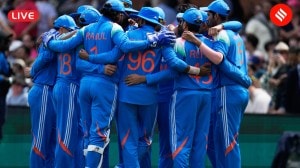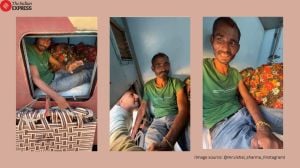A journey from pool to court
Ana Ivanovic’s dramatic journey to the French Open final began with a TV advert, was nurtured in a swimming pool and survived NATO bombs.

Ana Ivanovic’s dramatic journey to the French Open final began with a TV advert, was nurtured in a swimming pool and survived NATO bombs.
Now the vivacious 19-year-old Serbian hopes to crown her remarkable voyage to a first Grand Slam final by depriving overwhelming favourite Justine Henin of a third successive Roland Garros title.
But Ivanovic’s career didn’t have the most promising of starts.
She took up the game at five years old after seeing a commercial on television and being inspired by watching compatriot Monica Seles, the last Serbian to win here in 1992.
Then, after being given a racquet for a present, she faced the problem of trying to find somewhere indoors to practice during Serbia’s biting winters.
In a country where tennis courts were almost unheard of, there was a novel solution. “I played in a swimming pool. It was too expensive to keep it warm during the winter and there weren’t many people using it anyway so they emptied the water, put a carpet on the floor and put in two tennis courts,” recalled Ivanovic.
“It was impossible to play crosscourt because the wall was too close. All we could do was play down the lines.”
But Ivanovic, with the encouragement of her lawyer mother Dragana and father Miroslav, an economist, wasn’t deterred by the chronic lack of facilities. Things would improve in the summer when she could play outside, combining six hours of school with two hours of tennis every day of the week.
“I was always very active when I was a kid,” she said. “I never played with dolls.” However, in 1999, her world was turned upside. The west lost patience with Slobodan Milosevic’s regime, and its ethnic cleansing in Kosovo, and Belgrade burned beneath a firestorm of NATO bombs.
“It was tough,” said Ivanovic who was just 11 at the time of the eight-week bombing campaign. “I thought it would be impossible to continue as we didn’t know how long it would go on. We had troubles travelling because it was hard to get visas. There were no flights from Serbia. We had to go to Hungary, so we’d take a bus for six, seven hours just to catch a flight.”
Times were hard but the youngster’s potential was spotted by Swiss businessman Dan Holzmann who invested 300,000 euros in her career when she was just 14 and took over as her manager. She switched her base to Basel, where she now lives, and despite the problems of her early Balkan years, she hasn’t looked back rising to seven in the world and winning her first title in Berlin last month.
Ivanovic must go solo
Coach Sven Groenefeld has made a huge difference to Ana Ivanovic’s career this year (she won the German Open and reached her first Grand Slam final) but Groenefeld, like Ivanovic and Henin, is under contract to a sportswear brand and part of his deal is that he cannot coach one of the company’s players against the other.



- 01
- 02
- 03
- 04
- 05


























